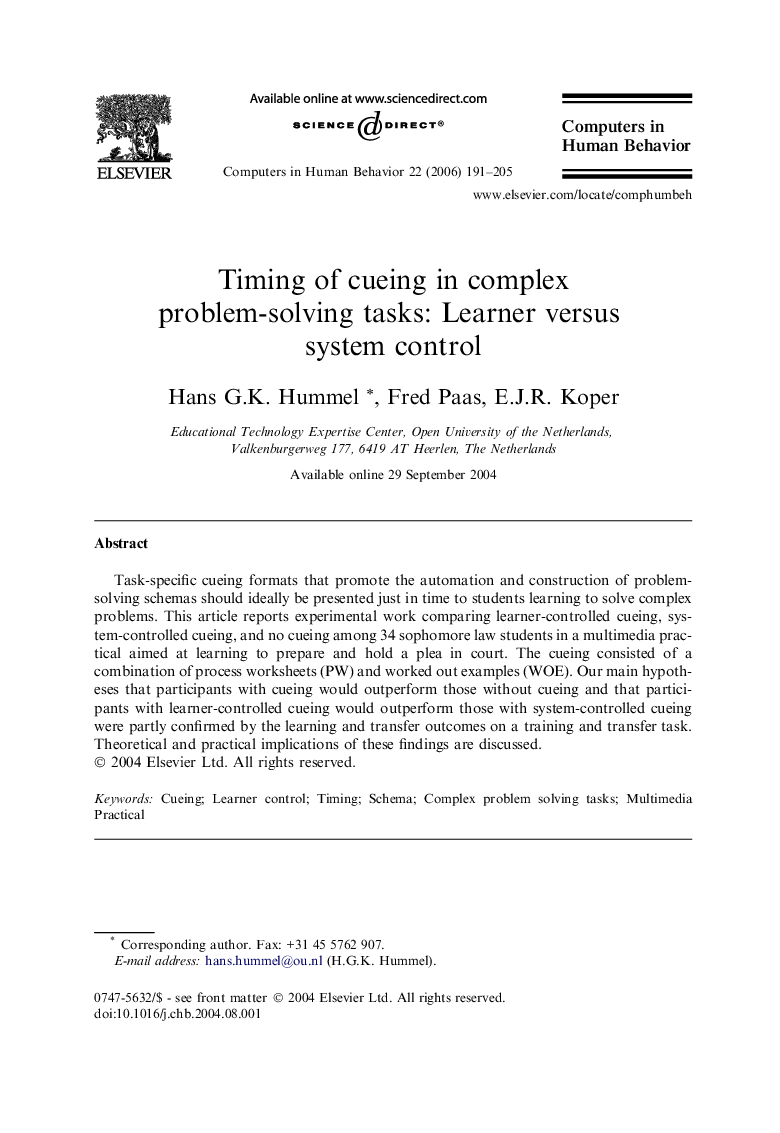| Article ID | Journal | Published Year | Pages | File Type |
|---|---|---|---|---|
| 352522 | Computers in Human Behavior | 2006 | 15 Pages |
Task-specific cueing formats that promote the automation and construction of problem-solving schemas should ideally be presented just in time to students learning to solve complex problems. This article reports experimental work comparing learner-controlled cueing, system-controlled cueing, and no cueing among 34 sophomore law students in a multimedia practical aimed at learning to prepare and hold a plea in court. The cueing consisted of a combination of process worksheets (PW) and worked out examples (WOE). Our main hypotheses that participants with cueing would outperform those without cueing and that participants with learner-controlled cueing would outperform those with system-controlled cueing were partly confirmed by the learning and transfer outcomes on a training and transfer task. Theoretical and practical implications of these findings are discussed.
